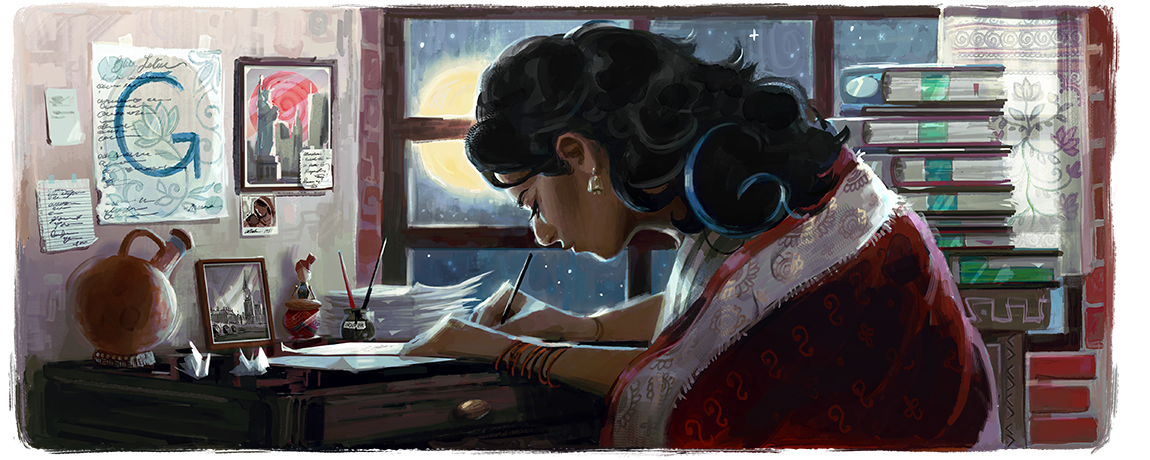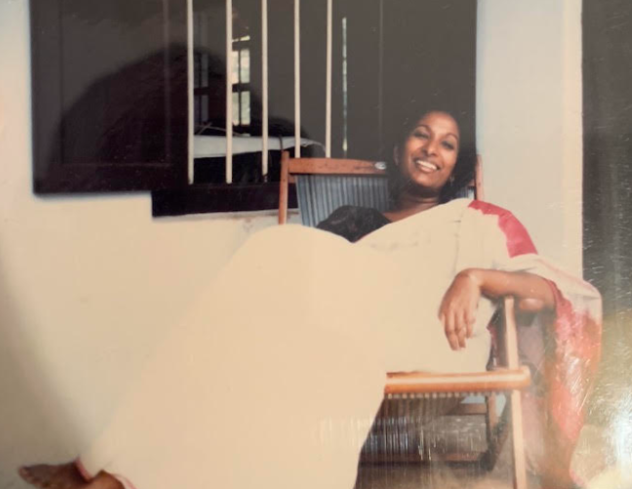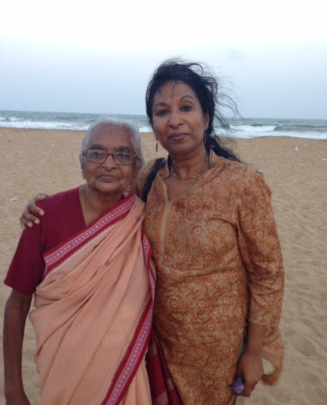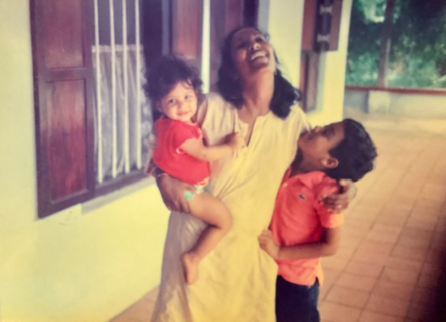Special thanks to Meena Alexander's estate, for their collaboration on this project. Below her son shares his thoughts on Meena Alexander’s legacy.
Mama was an artist and a fighter. She believed deeply in the craft of her work and the search for something akin to truth. She was brave and adventurous and joyful and sought herself in many homes, and in the art of poetry.
Mama was also an immigrant and a feminist, and she arrived pregnant to New York City with our father David, her new husband, in the late 1970s, determined to build her own life and continue her work.
On this day of celebration of Asian American identity, one can certainly say she built and embodied an “Indian-American” self, part of a larger South Asian diaspora, in turn part of a vast continent of peoples who have settled here. But this identity was one that necessarily embraced the identities of others who sought voice and breath in this fraught and opportune land, and her circle of thinkers, artists, and poets was broad and deep. It went well beyond a fixed “Asian” identity to encompass all writing that she thought human and sharp and true, from Wollstonecraft to Lorde, Basho to Hong Kingston, Ondaatje, Morrison, Celan, Farah, Harjo, and Walcott, to name only a small few. In the world of South Asian letters, Kamala Das, Jayanta Mahapatra, Umashankar Joshi were important mentors. Anita Desai and Ngũgĩ wa Thiong’o were close friends and peers.
In other words, it was in the specificity of her lived experiences, memories and dreams, centered in the diversity of New York City but with a community of kindred spirits across many shores, that she built a home and a poetic self that could transcend the neat, barbed boxes of American identity that were laid out before her.
She was also a caring and empathetic teacher, and she brought her warmth and encouragement to many generations of students. She encouraged students to think rigorously, and lyrically, in tune with themselves and the moment in which they lived.
In this time of great conflict and weariness, Mama would have spoken for the voiceless through her art; against cruelty, greed, and narrow-mindedness, with great empathy. We miss her dearly, and thank Google for this tribute, which is only as strong as the people who use it to find their own lyric, and speak their brave truths.
- Adam Kuruvilla Lelyveld, Spring ‘24, Brooklyn NY






